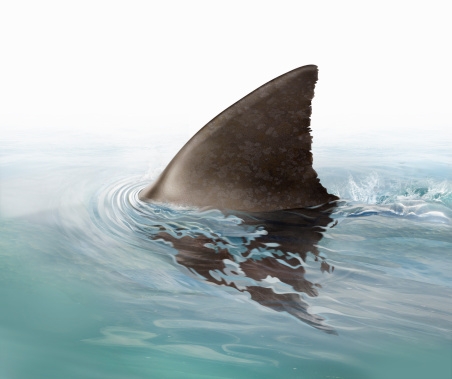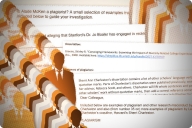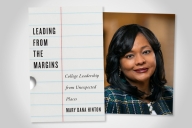You have /5 articles left.
Sign up for a free account or log in.

Getty Images
Derek Pyne, an associate professor of economics at Thompson Rivers University in British Columbia, Canada, says he wasn’t trying to make his colleagues look bad when he used them as his data set for research on predatory publications. Nevertheless, he found that the majority of the School of Business and Economics faculty had published in these open-access journals, which have low to nonexistent quality standards and charge authors fees.
As a result of that 2017 paper and the media attention that followed, Pyne says, he’s been effectively banned from campus since May. He may visit only for a short list of reasons, such as health care. Teaching is out and so, too, is the library. It’s unclear when, or if, Pyne will be allowed to resume his normal duties.
Canada's Society for Academic Freedom and Scholarship has appealed to Thompson Rivers on Pyne's behalf. The Canadian Association of University Teachers, similar to American Association of University Professors, is also looking into the case.
Thompson Rivers has refused to participate in that investigation so far, David Robinson, CAUT’s executive director, said recently.
“This is a very peculiar case,” Robinson said. “But certainly criticizing colleagues’ research or his administration is intramural speech protected by academic freedom. These are matters of educational quality. He may be correct, or he may not be correct. But he certainly has a right to express his views on educational quality.”
A university spokesperson declined to answer specific questions about the circumstances of Pyne’s suspension but forwarded several general comments on the matter, including one from Christine Bovis-Cnossen, interim president. That statement says that Thompson Rivers is “unequivocally committed to the principle of academic freedom for all of our faculty members. This is fundamental to who we are as a university. We routinely work in concert with our faculty unions to ensure that the principle of academic freedom is protected and preserved in the research and teaching of every member of our faculty, as well as in the right of any faculty member to criticize the university.”
Pyne says his faculty union, TRU Faculty Association, did file a grievance that restored his pay after he was suspended. But it's unclear why the union hasn't filed grievances about academic freedom aimed at getting him back on campus. The association president did not immediately respond to a request for comment and has publicly declined to answer other questions about the case.
Pyne, who has been at Thompson Rivers since 2010, was always a squeaky wheel in the department, once getting into a shouting match with a former chair about academic programs, for example. He’d also had earlier email skirmishes with his dean and a colleague about his interest in predatory publications. Yet he says his motivation to study his colleagues’ research records for involvement with bogus journals was fundamentally economic.
Predatory journals, which have proliferated over the last decade, are typically portrayed as, well, predators, preying on unsuspecting or desperate-to-publish academic victims. After learning that some scholars with otherwise strong research records had published in predatory journals, Pyne wanted to know if there was more to the story. Were colleagues who published in these journals actually rewarded for doing so? His hunch, based on economic theory, specifically incentives, was yes. Otherwise, why would they do it?
Here’s what he found: most of his business school colleagues had, in fact, published in at least one predatory journal. More than that, they were being rewarded for it, perhaps more so than from publishing in quality journals. His analysis showed that publications in predatory journals, at least in his tiny corner of the academic universe, were correlated with higher compensation and internal research rewards.
Pyne didn’t name names of individuals in his paper, but it marked a shift in the predatory journal discussion -- namely that institutions may be much more complicit in the system than merely clinging to easy research output metrics.
The Journal of Scholarly Publishing printed Pyne’s paper, “The Rewards of Predatory Publications at a Small Business School,” in the spring of 2017, when he was on sabbatical in Europe. There was little initial fanfare. But that summer and into the fall, when he returned to campus, Pyne fielded numerous media requests about the paper.
Around the same time, Pyne began to criticize new graduate programs within the business school. Internally, he told colleagues that they were more like undergraduate programs in quality. He said as much externally, including in comments posted to a local news website, where he also mentioned his findings on predatory publications.
According to department minutes, Pyne’s colleagues soon passed motions of “serious concern” about his comments on the news site. A colleague also launched research claims against him, which were later dropped.
‘Pathologizing Dissent’
In the meantime, in January, Pyne was summoned to a meeting with administrators and informed that faculty members, staff and students were afraid of him. Pyne says it’s unclear why, since he was never provided even redacted copies of specific complaints of that nature. Later that month, Pyne says, he was asked to undergo a psychological evaluation or risk an immediate forced medical leave.
In May, Pyne was banned from campus, his keys confiscated. People claimed they’d seen him on campus talking to himself and waving his hands, he was told. Two weeks later, in hopes that he could lift the suspension, he followed through on the evaluation order with a psychologist provided by the university.
A copy of the psychologist’s evaluation said that Pyne felt persecuted by the university, which he says is understandable in his situation. But there was no indication that he posed a security threat or anything that would justify an administrative leave based on medical or safety grounds, he says.
Even on leave, Pyne submitted to the university feedback on an associate dean candidate, questioning his research record. Several news outlets contacted Pyne around the same time for another interview, in which he continued to criticize the university and some of his colleagues, still not by name.
Later in the summer, Pyne's union informed him that he was back on the university payroll. But he also received a new administrative directive, which he took as the university’s latest in a series of shifting rationales for his suspension: that he “cease communicating inappropriate, defamatory and insubordinate statements” about the university.
Most recently, earlier this month, the university’s human resources office emailed Pyne to ask him why he’d commented on Facebook that a university statement about his case was “misleading (if not dishonest).”
“Please explain what in the president’s message was ‘misleading’ and the facts that you rely on in making that statement,” an email from the office reads. “For clarification, your response should be sent directly to me, and will not be treated as new and independent defamation.”
Ivan Oransky, Distinguished Writer in Residence at New York University's Arthur Carter Journalism Institute and co-founder of Retraction Watch, has followed Pyne’s case for over a year. He said recently that he was “puzzled” about “what's actually going on. It's not very helpful when a university takes action like this but doesn't say why.”
That's why Retraction Watch has argued for the release of university investigations, he said, citing an article on why Cornell University hasn’t released its findings in the Brian Wansink research misconduct case, among other similar incidents elsewhere.
Robinson, of the CAUT, said the Thompson Rivers investigation is ongoing. But based on Pyne’s claims and the available documents, he said, the university appears to be “pathologizing dissent.”
If that’s the case, the university has a lot of material: Pyne dissents much. But if putting him on leave was an attempt to quiet him, it hasn’t worked. Instead, speaking out against the university is a method of defense for him.
However personal things have gotten, Pyne said his concerns continue to center on research integrity. Some colleagues have thanked him for his work and even moved to delete publications in predatory journals from their CVs.
“I can see making the mistake once,” he said of publishing in a predatory publication. “But when you start getting multiple mistakes, people doing this six, seven, eight, nine times, you have to wonder if they’re really qualified to do research to begin with.”









